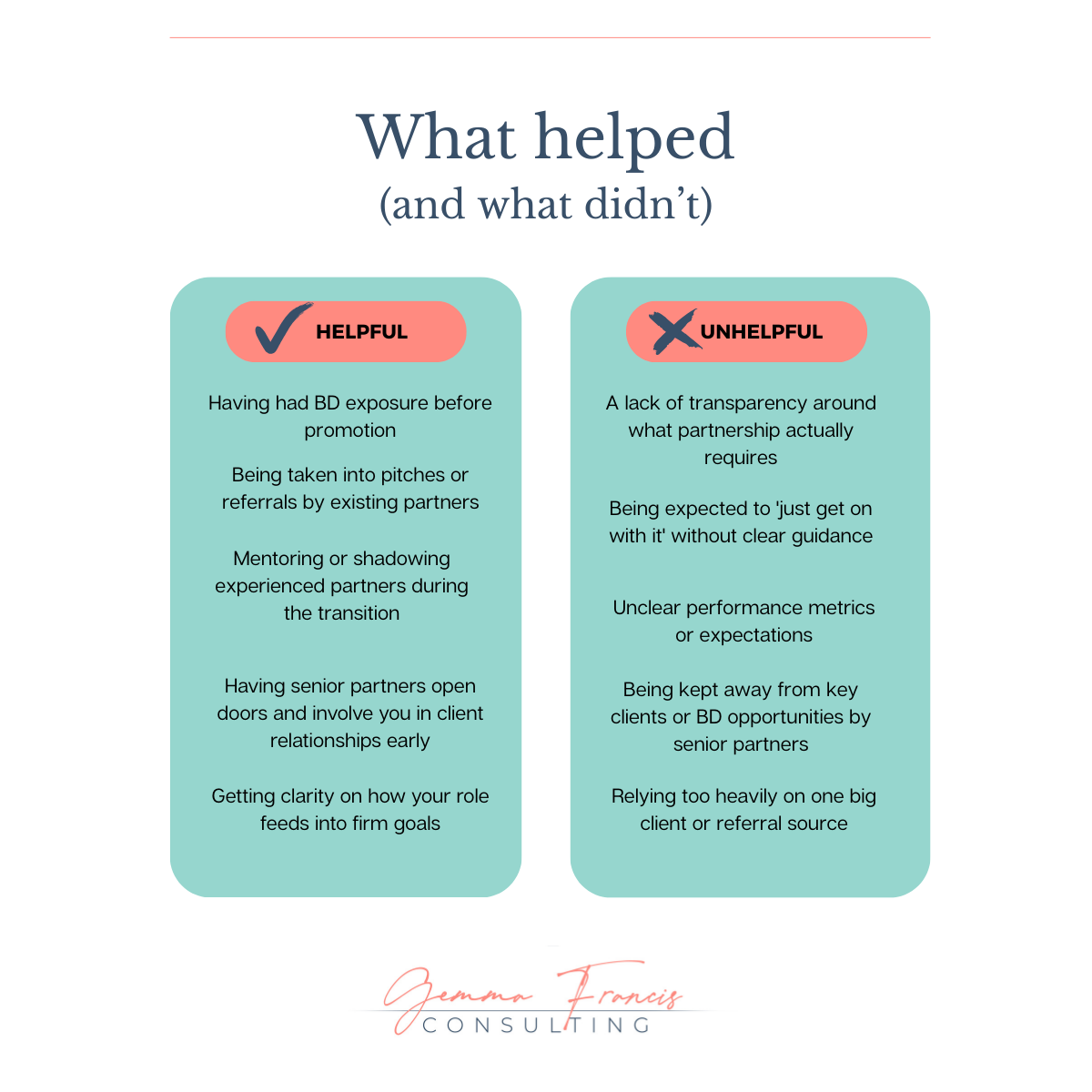Making partner is a huge career milestone. But here’s the truth: it’s also one of the most misunderstood transitions in the legal world.
It’s not just a promotion. It’s a complete shift – in expectations, responsibilities, and how you show up.
In our latest report, we spoke to junior partners across a range of UK firms about what that shift really felt like. What helped. What didn’t. And what they wish they’d known earlier.
1. The “visibility trap” is real
Many new partners feel pressure to suddenly become the “face” of the firm – leading pitches, speaking at events, growing a profile. But they often step into that spotlight without much warning or support.
So what can help ease you into this transition?
2. Business development is no longer optional
But too many firms offer little clarity on what “good BD” looks like. New partners are often handed a target and a budget, with little training or coaching to back it up.
“I was suddenly expected to bring in work, but no one had shown me how.”
3. Internal shifts can be just as tough
Your colleagues change when you become a partner. Associates become your reports. Peers become competitors. And you’re no longer “invited in” – you’re expected to lead.
The key is clarity. Be upfront about your focus, goals, and where you want to add value. Build trust early with internal referrers – those early connections will often feed your first year of work.
4. Support makes a difference – but it’s rare
- Being brought into pitches early
- Shadowing experienced partners
- Honest conversations about what success looks like
- Individualised coaching, not generic BD training
5. Everyone’s path looks different

If you’re an associate thinking about partnership…
- Start acting like a partner now.
- Ask to join pitches.
- Build your visibility (and confidence) before the pressure is on.
- Treat BD like billing – track it, schedule it, review it.
If you’re a firm supporting new partners…
- Be clear about expectations early
- Offer structured support in the first 12–24 months
- Recognise that BD looks different for everyone – and that’s a strength, not a problem
It’s packed with direct quotes, actionable advice, and real stories from junior partners across the UK.


